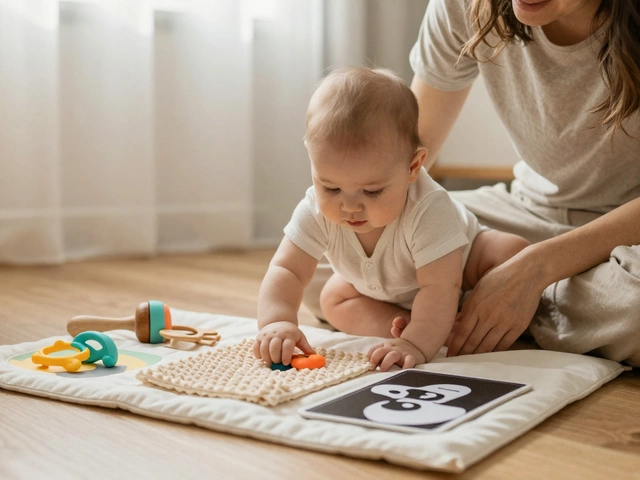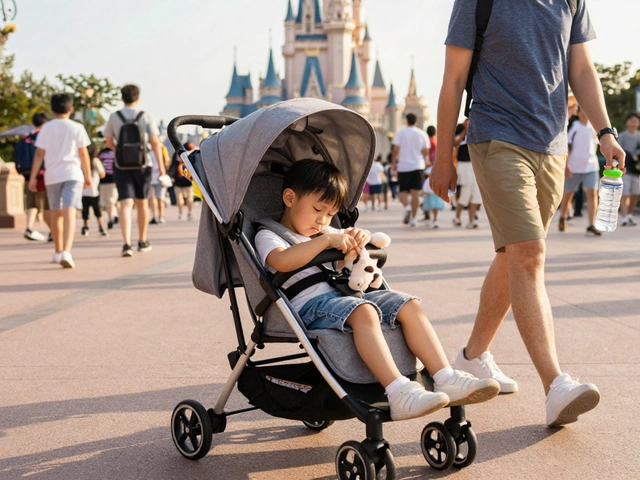8-Month-Old Baby Guide
Got a little one who’s just turned 8 months? Congrats! That’s the age when curiosity spikes, solid foods become a regular thing, and the world starts feeling a lot bigger. Below you’ll find the most useful, no‑fluff advice to help you navigate feeding, sleep, safety and play during this exciting stage.
Feeding & Nutrition at 8 Months
At eight months your baby is moving from purees to more textured foods. Offer soft‑cooked veggies, ripe fruits, and tiny bits of well‑cooked meat or tofu. Aim for three solid meals a day plus a few healthy snacks – think small pieces of banana, avocado or soft cheese. Don’t forget breast‑milk or formula; it should still make up about half of the daily intake.
Watch for signs of readiness: the baby can sit up unassisted, shows interest in what you’re eating, and can bring food to the mouth with a spoon. If you notice gagging, it’s usually normal – the gag reflex helps protect the airway. Just keep the food size small and the texture manageable.
Stay on top of iron and vitamin D. Iron‑rich foods like lentils, minced meat, or iron‑fortified cereals are key. A daily vitamin D drop, as advised by your pediatrician, keeps bones strong while your baby explores the world.
Sleep & Safety Tips
Eight‑month‑olds typically need 12‑14 hours of sleep in a 24‑hour period, including two naps. Keep the bedtime routine consistent – a short bath, a story, and a cuddle cue the brain that sleep is coming. If night waking becomes a pattern, check for teething pain or a too‑warm room.
Safety upgrades become a priority now. The crib mattress should be firm, and any loose bedding removed. If you’ve started introducing a nap mat or a safe floor space, make sure the area is baby‑proofed: cover outlets, secure cords, and block off stairs.
Travel safety is another biggie. The UK law says a child must use a rear‑facing car seat until at least 15 kg – most 8‑month‑olds still fall under that rule. Check the weight limit on your seat and ensure it’s installed correctly. For stroller rides, choose a model with a five‑point harness and a recline feature for nap time on the go.
Besides the car, think about baby‑proofing the home. Install cupboard locks, move small objects out of reach, and use corner protectors on sharp furniture edges. A simple “no‑toys on the floor” rule can prevent choking hazards as your baby learns to crawl.
Playtime is the perfect learning lab. Offer soft blocks, stackable cups, and textured books. These toys boost fine motor skills and hand‑eye coordination. Talk, sing, and describe what you’re doing – language development rockets at this age.
Finally, keep regular pediatric check‑ups. Your doctor will track growth curves, review vaccinations, and discuss any concerns like reflux or sleep patterns. Early chat about any worries saves lots of stress later.
Bottom line: at 8 months your baby is a mini‑explorer. Feed them well, protect their environment, keep sleep consistent, and enjoy the endless giggles that come with every new discovery.

Can I Give My 8-Month-Old Cow's Milk Instead of Formula?
Introducing cow's milk to infants under one year old can raise questions among parents. While it might seem like a natural transition, there are several reasons why cow's milk isn't recommended as a primary drink before 12 months. This article explores these reasons and provides tips on safely transitioning to cow's milk after a year. Understanding the nutritional needs of your baby is crucial for their development.
view more




